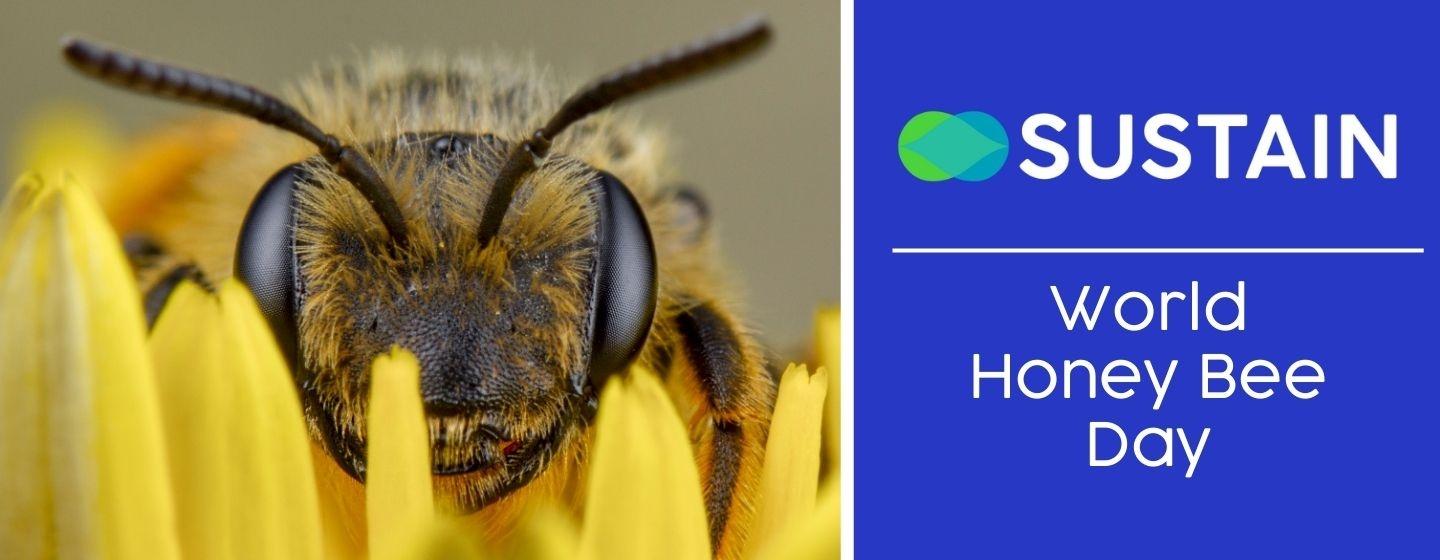World Honey Bee Day



As we buzz towards the end of Summer, a special day deserves our attention and celebration—World Honey Bee Day, held annually on the third Saturday in August (Aug 17, 2024)! These tiny, winged wonders play an enormous role in our ecosystem and are crucial to human survival. Let’s dive into the world of honey bees, explore their importance, share some fun facts, and discover how we can all support these incredible (hairy) creatures.
Honey bees are more than just producers of honey; they are key players in the pollination process, which is essential for the growth of many crops. One-third of the food we eat relies on pollination, and honey bees are responsible for 80% of that work! From fruits and vegetables to nuts and seeds, the variety and availability of our food depend heavily on honey bees.
Without these industrious insects, our food supply would be in serious jeopardy, and the biodiversity of our ecosystems would be drastically diminished. The decline in honey bee populations is not just a problem for beekeepers—it's a global issue that affects everyone.
Honey bees are fascinating creatures! Here are some fun facts that highlight just how amazing they are:
Honey bees play a vital role in pollinating many of Florida's key crops, including oranges, blueberries, and watermelons. The state's diverse flora provides a rich environment for bees, making it one of the top honey-producing states in the U.S. Bees also pollinate mangrove trees, which are crucial water filters in Florida.
However, Florida's honey bees face challenges such as habitat loss, pesticide exposure, and climate change. These factors contribute to the decline in bee populations, which in turn affects crop yields and the overall health of the ecosystem. Supporting honey bees in Florida is crucial for maintaining our agricultural success and biodiversity.
You don’t have to be a beekeeper to make a difference! Here are some simple steps you can take to help honey bees thrive:
Happy World Honey Bee Day! 🐝🌸🍯
A big thanks to two of Tampa Bay’s local beekeepers for helping with this blog and video:
Did you learn something new? Please take a moment to answer this short survey.